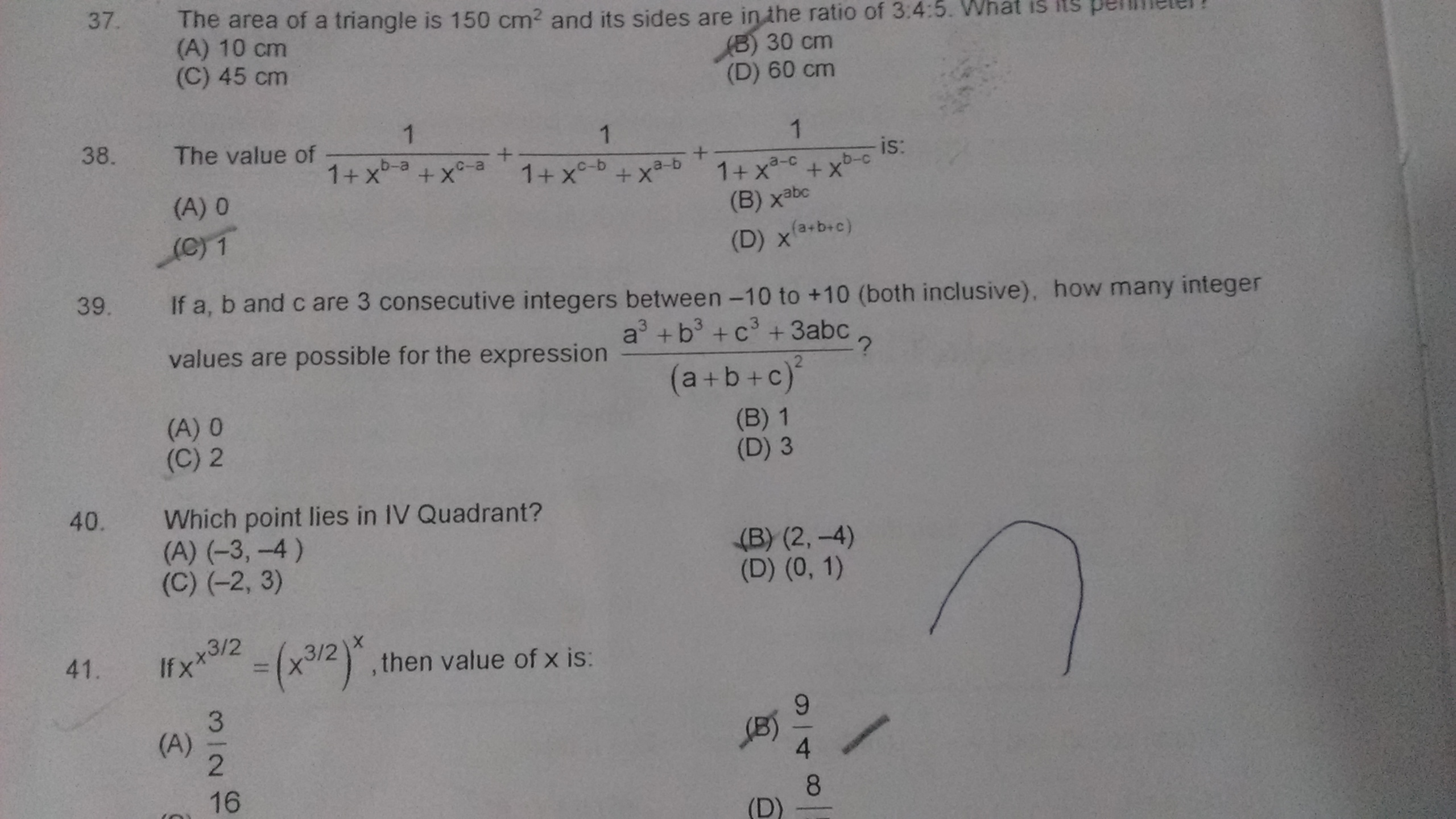Solve question 39 ?

2 Answers
B
Explanation:
First, we should make use of the fact that the numbers must be consecutive, by calling the numbers we choose to be
Second, notice that if we get a certain value for a specific
So we can simply let
Now our problem becomes to see for what values of
I'm going to continue the solution in a separate answer just to make it easier to read.
Part 2 of my sol'n. This will be using modular arithmetic, but if you are unfamiliar with it then there is always the option of subbing in all necessary values of
Explanation:
Because the expression must be an integer value, the bottom must divide the top exactly. Thus, the numerator should have a factor of 3. And for this we should use modular arithmetic.
Examine for which n satisfies:
Now casework:
1. We try
2. We try
3. We try
So we deduce that
At this point you might able to use the fact that
So finally, the only set of consecutive numbers that produces an integer result is
